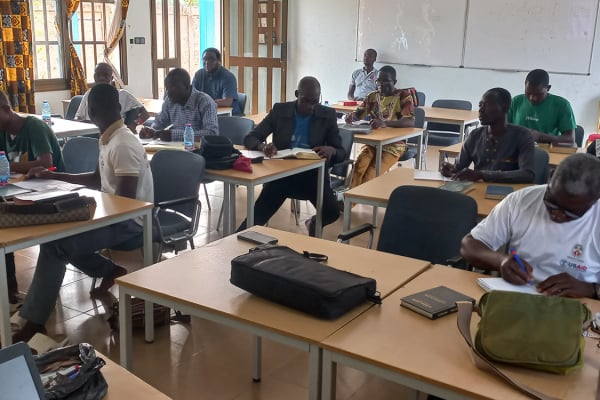
The Danger of the Term “Missionary”
In this second article on the meaning and use of the term missionary, Larry Sharp challenges the usefulness of this much-endeared word. His conclusion may seem radical to those considering this for the first time, but the realities of the world today must make us consider: What is the best way to describe what Jesus meant when He said, “Be my witnesses”?
The Danger of the Term “Missionary”
by Larry Sharp, Crossworld Vice President Emeritus
Missionaries have been identified as the ones tasked with making disciples, planting churches and witnessing cross-culturally to the grace of God. But there are three reasons why I think the word missionary has served its usefulness and should be abandoned for better expressions of how God has called us to live.
- The term missionary can inhibit credibility.
As we seek to express love and build relationships based on trust, people see us live out our faith in the real world and we become credible witnesses who can relate in everyday ways with an incarnational gospel.Today, this previously endeared term has become pejorative to most of the world’s population and even to people in North America with its overtones of proselytism, culture change and pith helmets. It simply is not helpful in building relationships worldwide.
- The term missionary can challenge integrity.
About 65 percent of the world’s population lives in more than 70 countries that do not allow religious worker (missionary) visas. Some people call these countries “closed,” but Bob Roberts in his book Glocalization reminds us that they are not closed at all — we just have to change our methods.We must be people of integrity in our identity: We must enter with and participate in real professions like medicine, engineering, education, research and business — not as a cover-up but actually doing what we say we are doing as professionals who live and love like Jesus. Story after story tells of people coming to faith because such workers set out to “bless the nations” and in so doing made disciples.
- Missionary terminology can restrict authenticity.
Missionaries have often held an elevated position of spiritual authority and status in our churches. However, all believers are called to obey Jesus by making disciples. To keep using the term missionary risks perpetuating the false dichotomy between the sacred and secular. Professional missionaries alone will not get the job done — the Great Commission needs all of us.
Jesus said to His church and everyone in it, “In your going, make disciples…” and “Be my witnesses.” He did not say to a select few, “Go and be a missionary.” Let’s abandon the distinction and all take up our part.
.png)

 By John Spadafora
By John Spadafora











